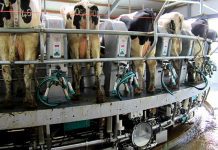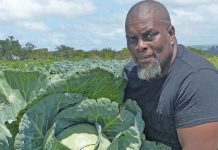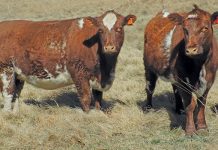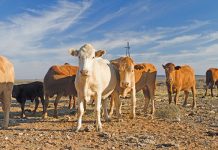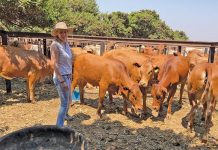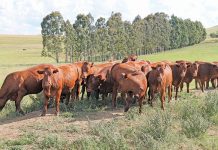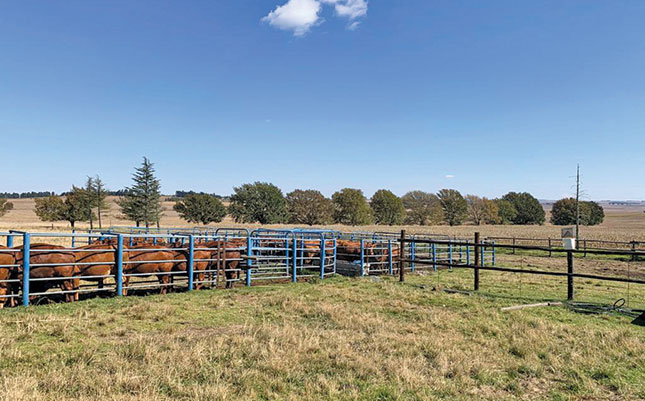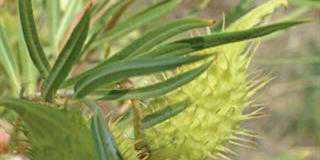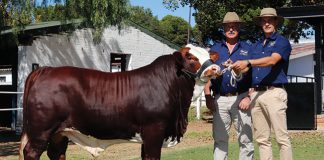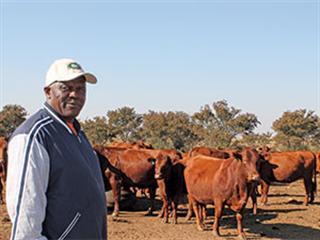
After leaving politics several years ago and becoming a partner at Bowman Gilfillan Attorneys, Dr Penuell Maduna has gone on to pursue a very different interest: beef cattle. For just over three years, he has been the owner of the Nokhala Bonsmara Stud. “For someone who grew up in Soweto and spent much of his adult life in the city, this has been an extraordinary experience,” he says. “I had no interest whatsoever in agriculture until some of my commercial farmer friends steered me in this direction.
“Neil Rissik, a top Bonsmara breeder and a partner at Bowman Gilfillan, was the first to introduce me to cattle farming. He’d been badgering me to take it up for a long time.” Maduna attended a Redgate Bonsmara auction near Boons outside Rustenburg, and that was all it took to fire up his enthusiasm. Rissik mentored him through laying the foundations of his own herd.
“I started by buying 22 pregnant cows, 20 heifers and one bull – a breeding herd of 43,” he recalls. “Within a year I had more than 60 animals. I could never have imagined such a great return on any investment. I registered the Nokhala Bonsmara herd with the Bonsmara Breeders’ Society in 2009. Neil leased me a portion of his farm at Rooipan, not far from Carletonville.”
The following year, another friend, Mof Terreblanche, persuaded Maduna to buy his own farm. “I bought a 1 200ha farm, Bentevrede, which was funded by the Maduna family,” he says. The property is near Koppies in the Free State. Today, Maduna runs about 300 Bonsmara cattle, including bulls and calves, on Bentevrede, as well as over 1 000 sheep, and about 100 goats and pigs under the name Maduna Boerdery. In addition, he runs a stud herd of about 120 cows and 50 heifers at Redgate Farm near Boons.
Quality animals
“Neil’s passion for Bonsmara helped to influence me in choosing the breed,” explains Maduna. “They certainly haven’t disappointed me. My bulls compete with those of top breeders, largely due to the fine management of Cecil van den Berg, Redgate Bonsmara’s farm manager. Neil and I run our stud herds at Redgate Farm near Boons as well as at Rooipan outside Carletonville.”
Van den Berg spells out his breeding principles: “We breed early-maturing ‘right-type, right-size’ Bonsmaras. The cattle must have good conformation, muscling, balance and eye appeal. This year, our rainfall has only been about 60% of the norm, which is 750ml per annum, but the cattle are looking remarkably good, thanks to their adaptability. Bonsmara are well-known for this.”
The calves are weaned at seven months. Bull calves then go through Phase C and Phase D testing for between 80 and 120 days. Only about 50% pass selection, which is done by a qualified Bonsmara cattle judge and Van den Berg, who is also a qualified judge. About 85% of females are selected. The animals are run in an extensive system on rocky and broken sourveld south of the Magaliesberg range. Although heartwater, redwater and gall sickness are rife, the cattle do well in this environment.
“If they can survive here, they’ll adapt to any part of the country,” says Van den Berg. Maduna’s cattle, especially the bulls, are marketed at Redgate auctions. “During my first sale last year, I sold three bulls,” he says. “And I’ve been invited to sell four this year.”
Stud animals can improve commercial herds
“The purpose of stud breeding is to supply excellent breeding material to the commercial cattleman,” says Maduna. “So I use the best bulls bred in my stud herd for my own commercial herd.” In the two carcass competitions he has entered so far, Maduna’s animals have won first and second prize. He admits that starting a stud herd has not been cheap.
“The returns in a commercial herd are quicker and provide better cash flow. Stud breeding yields are slower, but returns are much higher. A stud breeder can’t sell animals for optimum profit right after weaning, but a commercial cattleman can.
“The most important requirement in cattle farming is to produce good quality weaners that carry enough meat. The only way to achieve this is to use good bulls.”
Relationships
A cattle breeder needs to keep in contact with other breeders and players in the industry, Maduna stresses. “I’ve found this has helped me enormously. Travelling around the country and visiting farms to learn what other cattlemen are doing also keeps me informed. “When I entered agriculture, I made a few promises to myself. The first was to run this enterprise strictly as a business. I count every rand I put into it and expect a return from it. “Although farming has a lifestyle element to it, it’s primarily a business. The quality of life comes as a consequence of the success of the farm. “I can’t spend money buying a farm just to visit on weekends.”
A farmer who’s ready to help
Maduna feels that, first of all, a farmer must be passionate about agriculture if he wants to make a success of it. “It’s not enough to say he has acquired a farm through the land redistribution programme,” he adds. “Secondly, as in any other business, he needs resources. The three basic tenets of a farming enterprise are land, labour and capital. Access to capital is a barrier when establishing any business, and farming is no different.”
Although new to the farming game, Maduna has already become involved in trying to help small-scale farmers. He and the others have submitted proposals to government for community-based projects that empower smallholders and include them in the red meat value chain. “Without capital it’s impossible,” he points out. “We’ve made presentations, but the wheels of government tend to turn very slowly. But I continue to hope that the government will come to the party.”
Email Penuell Maduna at [email protected]

